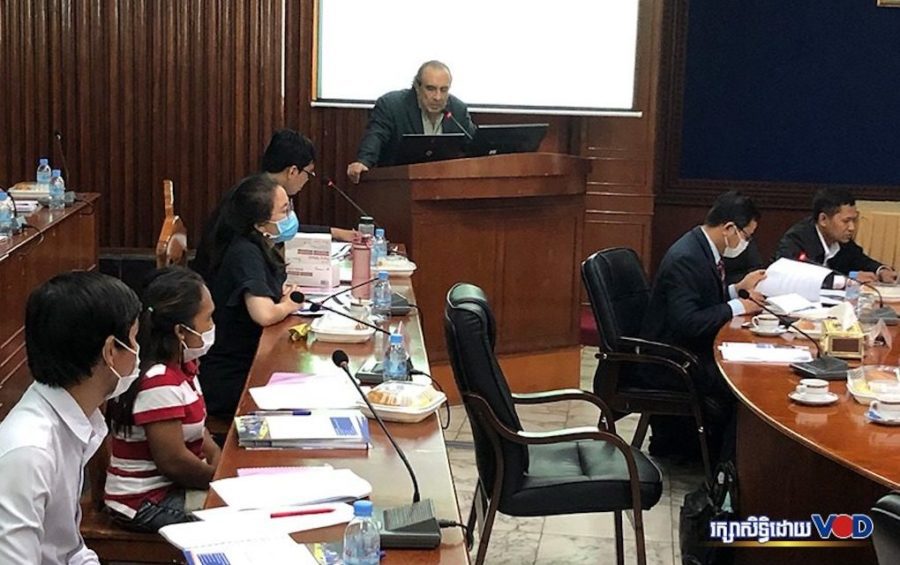Civil society members have urged the Senate to shorten the government’s maximum allowed time to respond to information requests in a long-awaited access to information law, before the draft reaches the National Assembly.
In a meeting with Senate officials on Wednesday, Lam Socheat, director of the Advocacy and Policy Institute (API), asked lawmakers to reduce the allowed response time from its current 15 days to five days in the draft law.
The legislation should be in line with international information access standards, Socheat said, noting that the group has lobbied ministries and other institutions to ensure the law reflects citizens’ needs.
“The law is for all people,” he said. “We have to make sure that the law meets the needs of youth.”
Pa Sopheak Chakrya, a youth API representative from Phnom Penh who met with Senate officials, said there was no reason to wait a full 15 days for requested information from the government, especially when asking for information from local officials.
“At the sub-national level, information is not complicated,” she said. “It is divided into communes, and their information is easy [to find] at these stages. People who need [information], they can go and ask for it, and we should be able to get it within only three to five days. That would be good.”
Soth Povsamnang, another youth API representative from Pursat province, urged the government to speed up the legislative process. The government has been working on drafts of the information access law for more than a decade.
“We already know that access to information is a fundamental right of the general population,” Povsamnang said. “Do whatever it takes to make this law even better and to speed up its adoption.”
Suon Puthavy, director general of the Senate’s General Research Department, said they would take the concerns into account, however, the draft law was still awaiting approval from the Information Ministry before it could be passed to the Council of Ministers, National Assembly and then the Senate.
Information Ministry spokesperson Meas Sophorn also said he had heard the youth’s concerns, without promising any further response.
“We have noticed all those issues and the decision is to follow through the procedures,” he said.
Last year, Toby Mendel, executive director of the nonprofit Centre for Law and Democracy, which rates countries’ information access laws, told VOD that Cambodia’s draft law was of “average quality” in relation to the organization’s standards.
While the access to information expert noted strengths in the legislation’s broad scope, procedures and exceptions, Mendel called it “very weak” in terms of appeals, and said it did not establish an independent oversight body.
Information Minister Khieu Kanharith said last year that the draft law should reach the National Assembly by the end of 2019, but it has yet to do so.
(Translated and edited from the original article on VOD Khmer)












